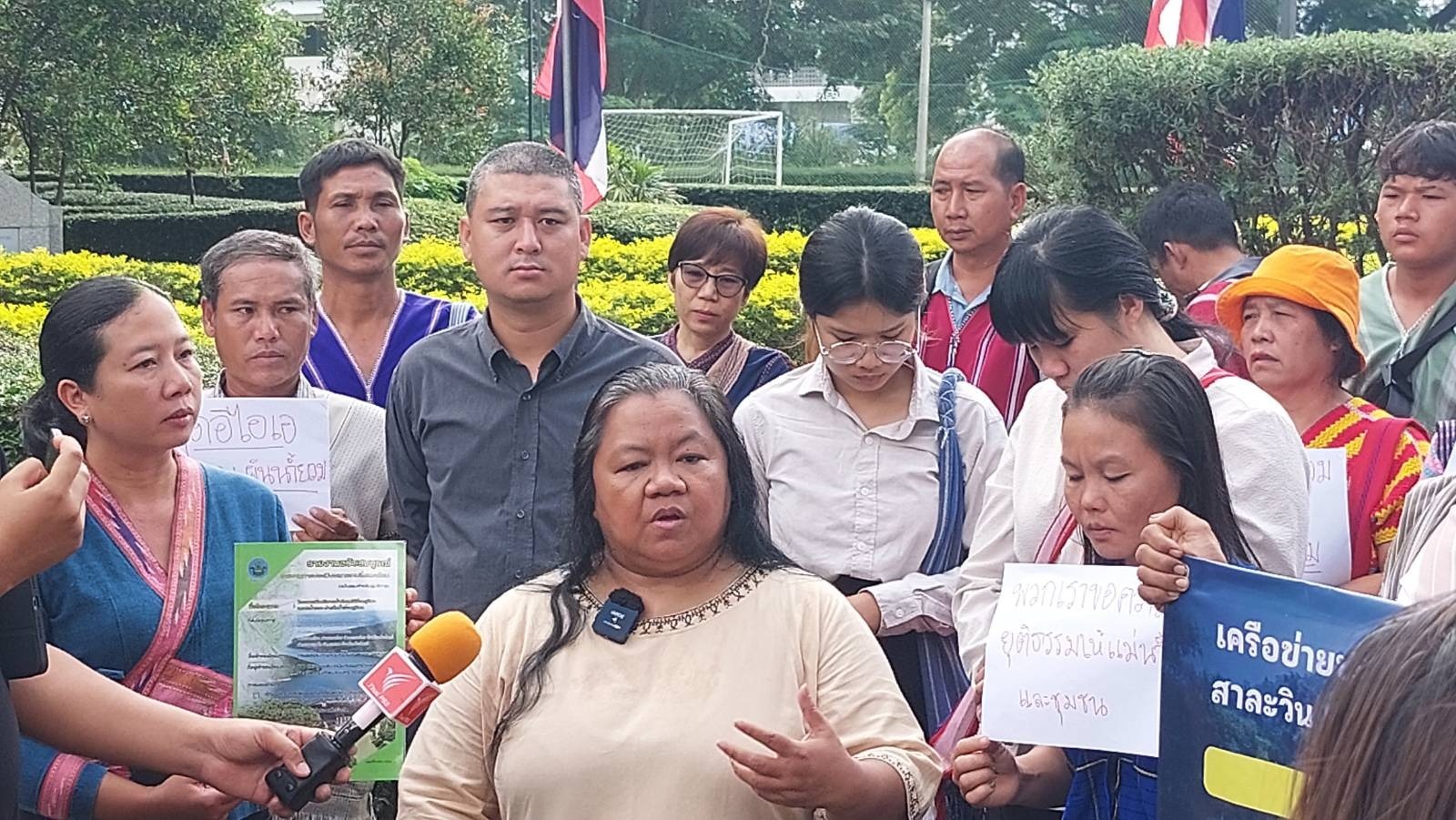by Pianporn Deetes, Regional Campaigns Director, Southeast Asia Program
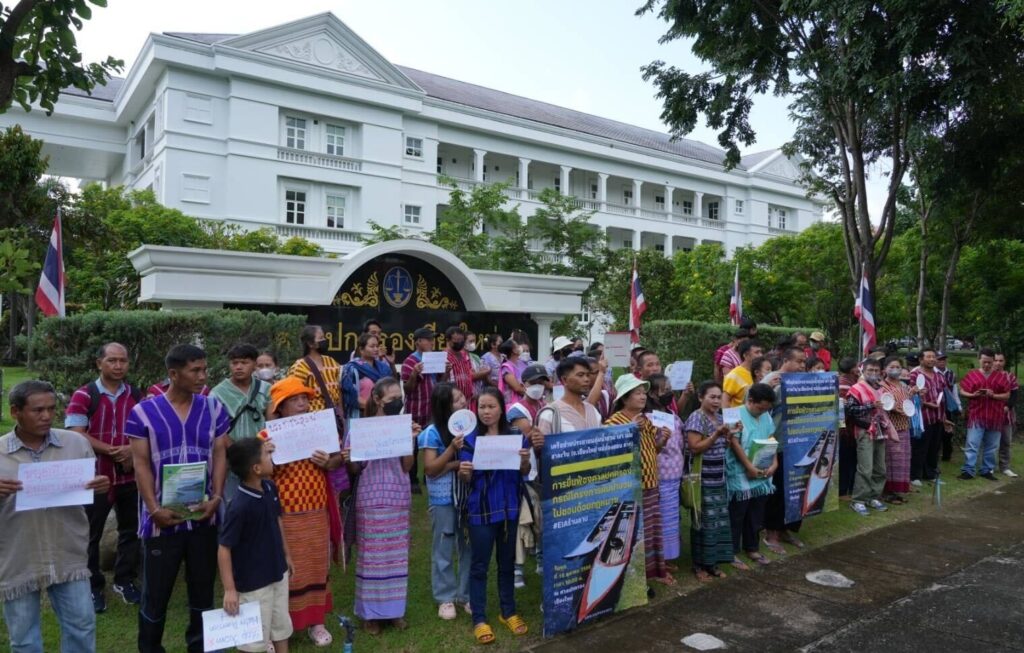
October 18, 2023 – Over 80 people gathered at the Chiang Mai Administrative Court in Thailand today to mark the filing of a lawsuit against the Yuam/Salween Water Diversion Project. The lawsuit challenges the legitimacy of the project and the project’s environmental impact assessment (EIA), which was approved by the National Environment Board in 2021. This lawsuit was filed against five Thai state agencies: the Royal Irrigation Department (RID); the Environmental Impact Assessment Expert Review Committee; the Office of Natural Resources and Environmental Policy and Planning (ONEP); the National Environment Board and the Thai Cabinet.
The 66 plaintiffs who filed the lawsuit, most of whom are Indigenous Karen people from three provinces in Northern Thailand that would be adversely impacted by the Water Diversion project, assert that the project’s EIA did not comply with Thai Law and should be revoked.
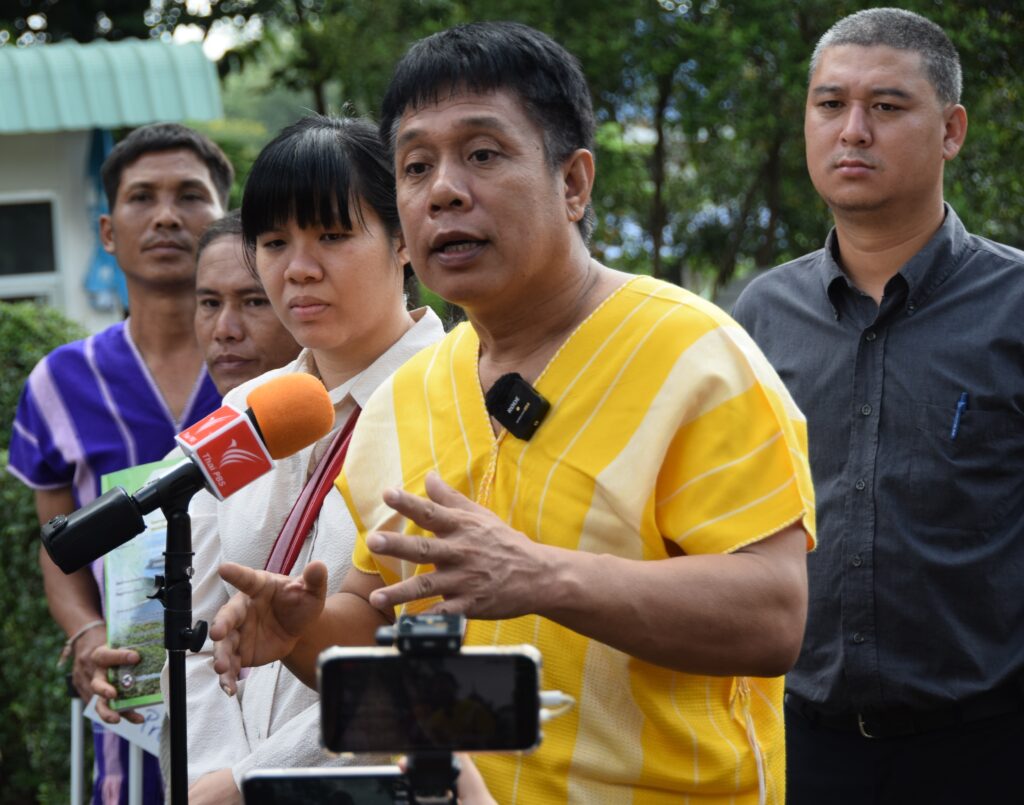
“We are filing the lawsuit because we don’t want the project,” said Wanchai Sinuan, village headman of Mae Ngut and one of the plaintiffs in the lawsuit. “The EIA doesn’t reflect the real situation…There are over 100 households in Mae Ngut village, but the EIA indicates only three people will be affected by the project. This is not possible.”
Lawyers representing the plaintiffs highlight that the EIA contains many instances of misrepresentation of consultations taking place and people’s attendance, including photos of individuals and meetings that were unrelated to the consultations.
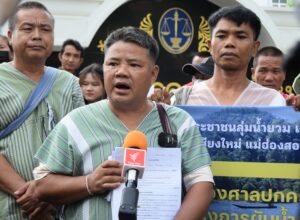
“If we don’t stand up and reveal the truth, we will be trampled on,” stated Sathan Chiewwichaiphong, one of the plaintiffs. “I have been working in the Salween basin for almost 30 years, but the EIA report incorrectly used photos of me. When people from three provinces examined the documents together with the legal team, we found that this [misrepresentation] had occurred in every area…The information [in the EIA report] is not factual.”
The lawsuit also asserts that the actions taken by Thai agencies to progress the project were not compliant with Thai laws and thus the project should be canceled. Plaintiffs highlight the need for Thai agencies to follow the Thai Constitution and laws, particularly those relating to public participation and the adequate and timely disclosure of information, which was not done in the case of the Yuam/Salween Water Diversion Project.
Background on the Yuam/Salween Water Diversion Project
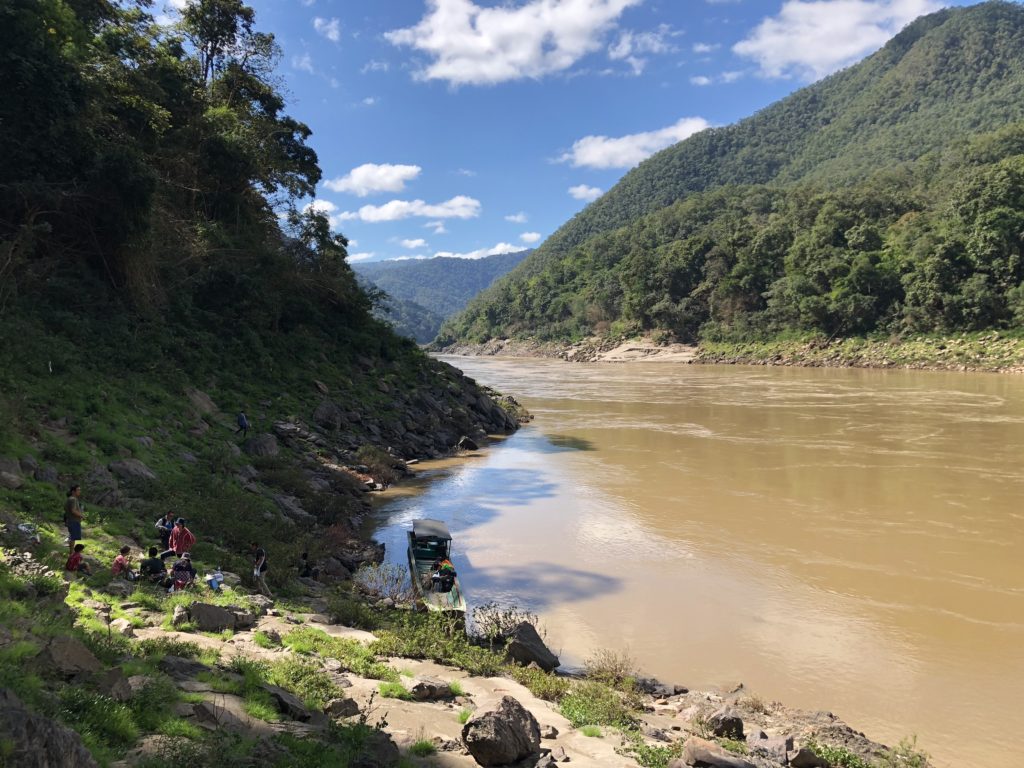
The Salween Water Diversion Project involves diverting water from the Yuam and Moei Rivers in the Salween Basin to the Bhumibol dam reservoir in the Chao Phraya Basin, through the construction of multiple dams and tunnels. If built, the project would impact at least five protected forests in three provinces – Tak, Mae Hong Son, and Chiang Mai. The project would also have transboundary impacts, reducing the amount of water flowing into the Salween in Myanmar. The Salween River is the longest free-flowing river in mainland Southeast Asia. This transboundary Salween Basin supports the livelihoods of over 10 million people, sustaining river fisheries and fertile farmland central to the lives of indigenous and ethnic minority communities.
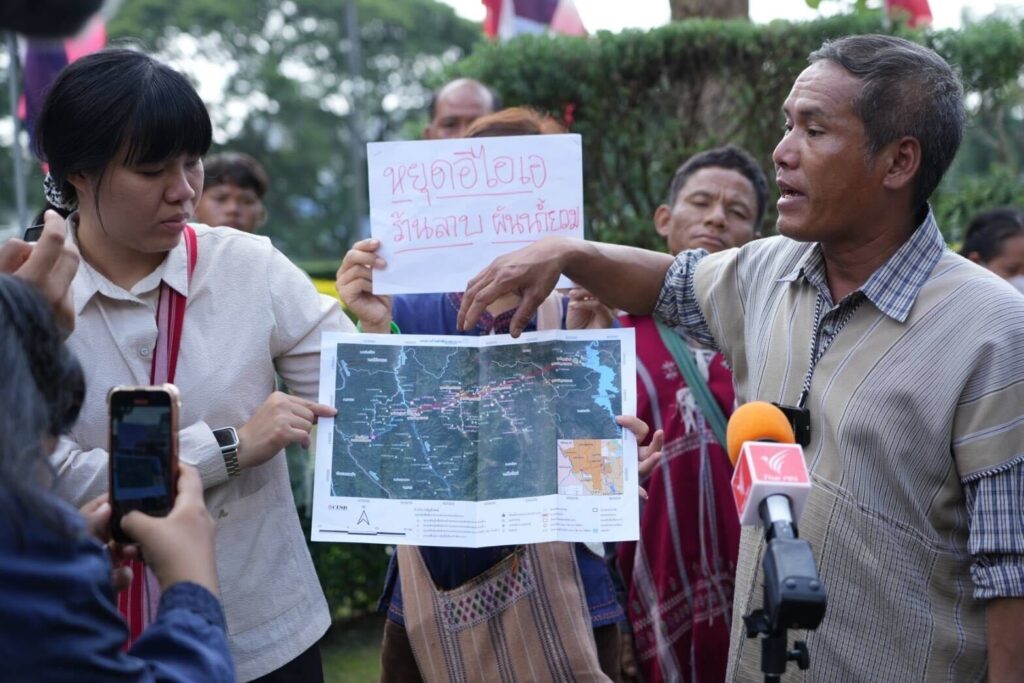
Before the lawsuit, the Yuam/Salween Water Diversion Project had been subject to investigations by the Thai Parliamentary Committee on Land, Natural Resources and Environment and the Thai National Human Rights Commission, following complaints filed by affected communities. On 1 December 2022, the Parliamentary Committee on Land, Natural Resources and Environment sent a letter to the then-Prime Minister and related agencies calling for the project to be stopped. The letter also echoed key community and civil society concerns about the EIA and calls for the EIA to be withdrawn.
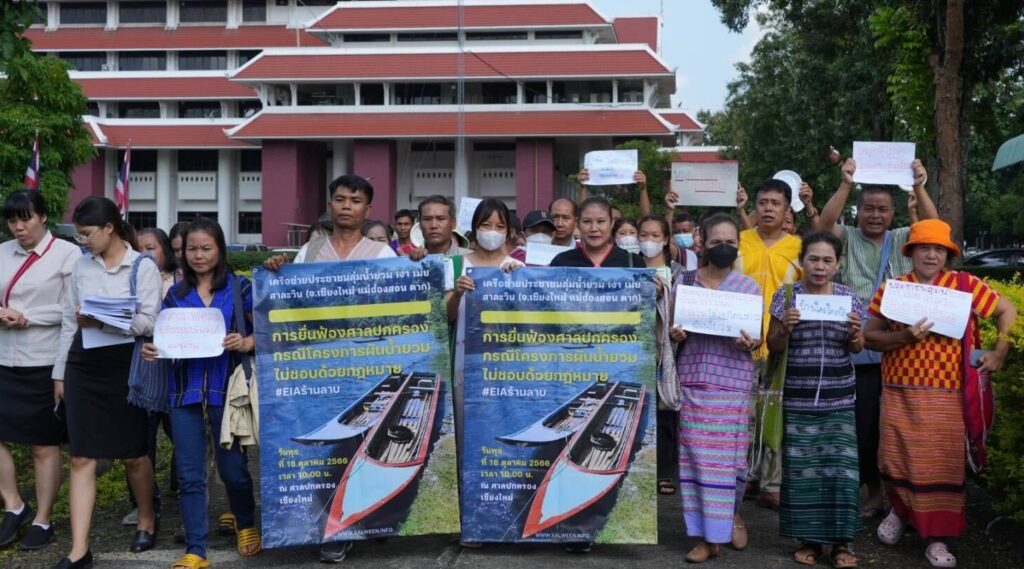
Featured image: Lawyer Sor Rattanamanee Polkla of the Community Resource Centre speaks to the media about the community lawsuit, credit: International Rivers

